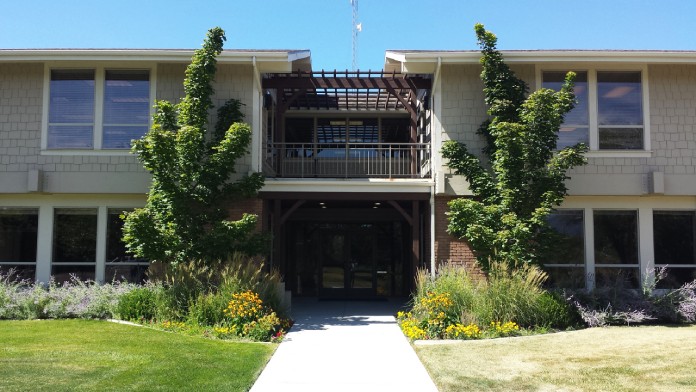About James Mason Centers for Recovery
James Mason Centers for Recovery was a behavioral health facility that provided addiction treatment for teens in Taylorsville, Utah. The levels of care that were offered included comprehensive day treatment and an intensive outpatient program (IOP). All of their services were also available through telephone or video conferencing.
Evidence Based Care Near Salt Lake City
The facility was located just 15 minutes outside of Salt Lake City. In between receiving evidence based care services, clients could enjoy activities such as relaxing at the International Peace Gardens or walking around Liberty Park.
One thing I like about this facility is they used a variety of proven therapeutic approaches to help teens recover from substance use disorder. The therapies they used included play therapy, cognitive behavioral therapy and emotionally focused family therapy. Play therapy could be effective at helping clients express their emotions and develop coping skills that could support their recovery.
Some holistic therapies that were used as a part of patients’ treatment were nutritional counseling, yoga and meditation. Patients also participated in engaging activities such as hiking and nature immersion. These therapeutic approaches could help clients feel physically well and reduce stress, which could help them feel less need to use substances.
Schooling Services to Earn Credits
James Mason Centers provided an accredited schooling program to make sure clients didn’t fall too far behind on credits. The scholastic team that was on staff had over 20 years of experience assisting adolescents with academics. A few of the courses that were taught at the facility were social studies, mathematics and language arts.
Latest Reviews
Rehab Score
Gallery


Addiction Treatments
Levels of Care
A partial hospitalization program (PHP) is a short-term form of intensive rehab, usually for those with acute symptoms that are hard to manage but don’t require 24-hour care. PHPs have structured programming (i.e. individual and/or group therapy), and usually meet 3-5 days a week for around 6 hours (i.e. 9am-3m). Some PHPs are residential (patients sleep on site) and some are not, so patients sleep at home. PHPs can last from 1-6 months, and some offer transportation and meals.
Outpatient Programs (OP) are for those seeking mental rehab or drug rehab, but who also stay at home every night. The main difference between outpatient treatment (OP) and intensive outpatient treatment (IOP) lies in the amount of hours the patient spends at the facility. Most of the time an outpatient program is designed for someone who has completed an inpatient stay and is looking to continue their growth in recovery. Outpatient is not meant to be the starting point, it is commonly referred to as aftercare.
Treatments
Mental health rehabs focus on helping individuals recover from mental illnesses like bipolar disorder, clinical depression, anxiety disorders, schizophrenia, and more. Mental health professionals at these facilities are trained to understand and treat mental health issues, both in individual and group settings.
Clinical Services
Cognitive Behavioral Therapy (CBT) is a therapy modality that focuses on the relationship between one's thoughts, feelings, and behaviors. It is used to establish and allow for healthy responses to thoughts and feelings (instead of unhealthy responses, like using drugs or alcohol). CBT has been proven effective for recovering addicts of all kinds, and is used to strengthen a patient's own self-awareness and ability to self-regulate. CBT allows individuals to monitor their own emotional state, become more adept at communicating with others, and manage stress without needing to engage in substance abuse.
Dialectical Behavior Therapy (DBT) is a modified form of Cognitive Behavioral Therapy (CBT), a treatment designed to help people understand and ultimately affect the relationship between their thoughts, feelings, and behaviors. DBT is often used for individuals who struggle with self-harm behaviors, such as self-mutilation (cutting) and suicidal thoughts, urges, or attempts. It has been proven clinically effective for those who struggle with out-of-control emotions and mental health illnesses like Borderline Personality Disorder.
Research clearly demonstrates that recovery is far more successful and sustainable when loved ones like family members participate in rehab and substance abuse treatment. Genetic factors may be at play when it comes to drug and alcohol addiction, as well as mental health issues. Family dynamics often play a critical role in addiction triggers, and if properly educated, family members can be a strong source of support when it comes to rehabilitation.
Group therapy is any therapeutic work that happens in a group (not one-on-one). There are a number of different group therapy modalities, including support groups, experiential therapy, psycho-education, and more. Group therapy involves treatment as well as processing interaction between group members.
In individual therapy, a patient meets one-on-one with a trained psychologist or counselor. Therapy is a pivotal part of effective substance abuse treatment, as it often covers root causes of addiction, including challenges faced by the patient in their social, family, and work/school life.
Trauma therapy addresses traumatic incidents from a client's past that are likely affecting their present-day experience. Trauma is often one of the primary triggers and potential causes of addiction, and can stem from child sexual abuse, domestic violence, having a parent with a mental illness, losing one or both parents at a young age, teenage or adult sexual assault, or any number of other factors. The purpose of trauma therapy is to allow a patient to process trauma and move through and past it, with the help of trained and compassionate mental health professionals.
Contact Information
986 West Atherton Drive
Suite 270
Taylorsville, UT 84123